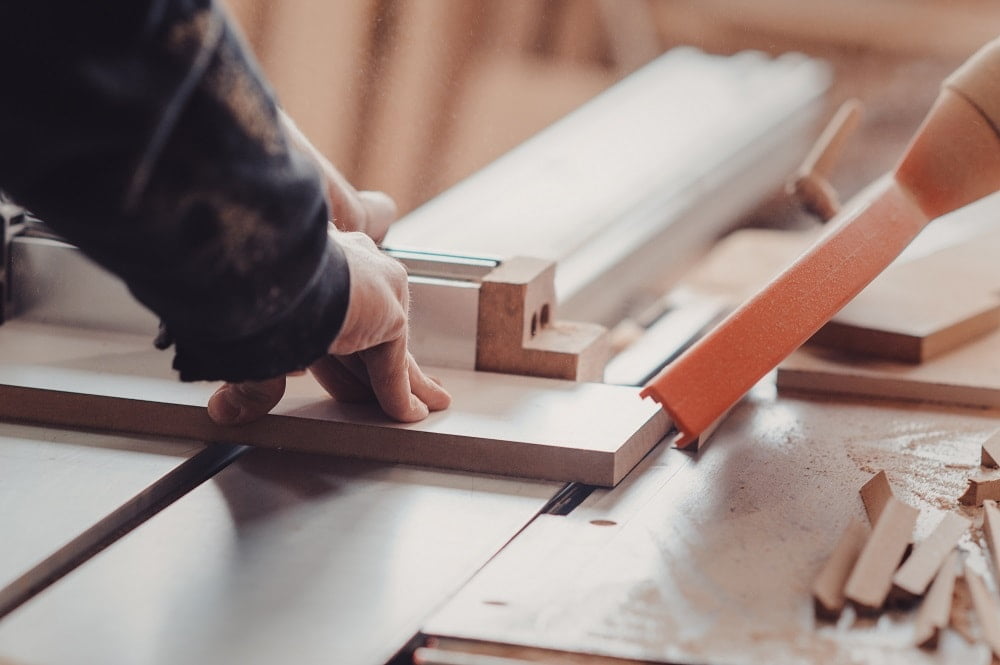Are you new to woodworking and unsure of where to start? In this article, we will discuss the must-haves for beginner woodworking, setting the foundation for your new hobby or craft.
Having the right tools and equipment is crucial for success in any woodworking project, and as a beginner, it’s essential to know what items are necessary to have in your workshop. From safety gear to hand tools, power tools, materials, and workspace organization, we will cover everything you need to kickstart your woodworking journey.
When it comes to woodworking, safety should always be a top priority. We will highlight the importance of protective gear such as safety goggles, gloves, and ear protection, and recommend specific safety gear that beginners must invest in. Additionally, we will explore the essential hand tools every beginner woodworker needs – from chisels and hand saws to planes – providing tips on choosing the right quality and size for each tool.
In the realm of power tools, we will discuss must-have items such as a table saw, drill, and sander for beginner woodworking projects. We’ll also provide recommendations for beginner-friendly options and tips on selecting the best power tools for your skill level. Furthermore, we’ll delve into essential woodworking materials and supplies like different types of wood, wood glue, and finishing supplies while offering tips on choosing the right materials for your projects.
And finally, we’ll touch on setting up a well-organized workshop as well as recommended reference materials and resources for learning woodworking techniques. Whether you’re looking to build furniture or create small handmade items from scratch, this comprehensive guide will help you get started on your woodworking journey with confidence.
Safety First
When it comes to woodworking, safety should always be the top priority. As a beginner woodworker, investing in the right protective gear and equipment is essential to prevent accidents and injuries. Safety goggles are a must-have for eye protection, especially when working with power tools or hand tools that produce flying debris.
Additionally, wearing gloves can help protect your hands from splinters, cuts, and abrasions, while ear protection is crucial when using loud power tools to prevent hearing damage. Without the proper protective gear, woodworking can pose serious risks to your health and safety.
For beginners looking to start their woodworking journey, there are specific safety gear items that they must invest in before getting started on any projects. In addition to safety goggles, gloves, and ear protection, a respirator or dust mask is essential for filtering out harmful dust particles and fumes produced during woodworking activities.
It’s also important to have a fire extinguisher nearby in case of any unexpected fires caused by wood dust or other flammable materials in the workshop. By prioritizing safety gear and equipment, beginner woodworkers can create a secure environment for honing their woodworking skills without compromising their wellbeing.
As a beginner woodworker, understanding the importance of protective gear and equipment is crucial for embarking on a safe and rewarding woodworking journey. Being proactive about safety not only prevents potential accidents but also ensures that you can enjoy the craft of woodworking with peace of mind. With the right protective gear at your disposal, you can focus on developing your skills and creating beautiful wood pieces without compromising on safety.
| Protective Gear | Importance |
|---|---|
| Safety Goggles | Protects eyes from flying debris |
| Gloves | Prevents splinters, cuts, and abrasions |
| Ear Protection | Prevents hearing damage from loud power tools |
Basic Hand Tools Every Beginner Woodworker Needs
When it comes to woodworking, having the right tools is essential for a successful and enjoyable experience. For beginner woodworkers, investing in basic hand tools is crucial for getting started on their projects. These tools not only provide precision and control but also help build foundational skills that will be useful as they advance in their woodworking journey.
One of the must-haves for beginner woodworking is a set of chisels. Chisels are versatile tools that can be used for a variety of tasks such as shaping, carving, and smoothing wood. It’s important for beginners to choose chisels with high-quality blades and comfortable handles to ensure ease of use and durability.
Another essential hand tool for beginners is a hand saw. Hand saws come in different types such as crosscut, rip, and dovetail saws, each serving specific purposes in woodworking projects. Investing in a quality hand saw allows beginners to make precise cuts and create intricate designs with ease.
Lastly, planes are indispensable hand tools for beginner woodworkers. They are used for smoothing rough surfaces, shaping edges, and removing imperfections from wood pieces. When selecting planes, beginners should consider smaller sizes that are easier to handle and maneuver while providing efficient results.
In summary, when starting out in woodworking, having basic hand tools is fundamental in honing skills and creating beautiful projects. By having the right set of chisels, hand saws, and planes, beginner woodworkers can develop their craftsmanship while gaining confidence in working with wood.
| Hand Tool | Key Considerations |
|---|---|
| Chisels | High-quality blades, comfortable handles |
| Hand Saw | Precision cuts, versatility |
| Planes | Smoothing rough surfaces, smaller sizes for maneuverability |
Power Tools for Beginner Woodworking Projects
When it comes to beginner woodworking, power tools can make a significant difference in the efficiency and precision of your projects. Investing in the right power tools is essential for any beginner woodworker looking to take their skills to the next level. Here are some must-haves for beginner woodworking when it comes to power tools:
Table Saw
A table saw is arguably the most important power tool for any woodworking workshop. It is versatile and can be used for a wide range of cuts, making it indispensable for many woodworking projects. For beginners, a smaller benchtop table saw may be more suitable as it takes up less space and is easier to maneuver.
Drill
A reliable drill is another essential tool that every beginner woodworker must have. Whether it’s for drilling pilot holes, driving screws, or creating pocket holes, a drill will be used in almost every woodworking project. Consider investing in a cordless drill with interchangeable batteries for added convenience.
Sander
Wood sanding is an integral part of most woodworking projects, and having a good quality sander can save you time and effort. For beginners, a random orbit sander is recommended as it provides smooth finishes without leaving swirl marks on the wood.
When choosing power tools for beginner woodworking, it’s important to consider safety features, ease of use, and reputable brands. While there are countless options available on the market, opting for beginner-friendly options with clear instructions and safety features will set you up for success in your woodworking journey.
Essential Woodworking Materials and Supplies
Woodworking materials and supplies are essential for beginners to have in their workshop. Choosing the right wood, wood glue, and finishing supplies can make a significant difference in the outcome of woodworking projects. Whether you’re working on small crafts or large furniture pieces, having the right materials and supplies is crucial for success.
Types of Wood
When it comes to woodworking, choosing the right type of wood is important. Beginners should familiarize themselves with different types of wood such as hardwoods (oak, maple, cherry) and softwoods (pine, cedar, spruce). Each type of wood has its own unique characteristics and properties, so understanding these differences will help beginners choose the most suitable wood for their projects.
Wood Glue and Adhesives
In woodworking, using the right type of glue is essential for strong and durable joints. Beginners should invest in high-quality wood glue that dries clear and creates a strong bond. Some popular options include yellow glue (polyvinyl acetate), epoxy glue, and cyanoacrylate (super glue). Having a variety of adhesives on hand will ensure that beginners are prepared for different types of woodworking projects.
Finishing Supplies
After completing a woodworking project, applying a finish can enhance the appearance and protect the wood from damage. Beginners must have sandpaper in various grits for smoothing surfaces before applying a finish. Additionally, having a range of finishes such as varnish, lacquer, or wax will give beginners options for achieving the desired look for their projects.
By having these essential woodworking materials and supplies in their workshop, beginners can confidently take on various woodworking projects knowing they have everything they need to create high-quality finished products. Understanding how to choose the right wood, using quality adhesives, and applying finishes properly are key steps towards mastering beginner woodworking skills.
Workshop Setup and Organization
Setting up a woodworking workshop is an exciting and essential step for beginners looking to dive into the world of woodworking. A well-organized and functional workspace is crucial for efficiency, safety, and enjoyment. Here are some tips to help beginner woodworkers set up a workshop that will meet their needs:
- Designate specific areas for different tasks: Having separate areas for cutting, sanding, assembly, and finishing will help keep your workspace organized and prevent cross-contamination of dust and debris.
- Invest in storage solutions: Proper storage is key to keeping your tools, materials, and supplies organized and easily accessible. Consider investing in tool chests, shelving units, cabinets, and pegboards to keep everything in its place.
- Keep safety in mind: Ensure that your workshop has adequate ventilation, good lighting, and clear pathways. It’s also important to have a first aid kit on hand in case of accidents.
In addition to the physical layout of the workshop, it’s important to consider the workflow when setting up a beginner-friendly woodworking space. By ensuring that tools and materials are easily accessible and that you have ample room to work on projects without feeling cramped or cluttered, you can set yourself up for success as you begin your woodworking journey.
Ultimately, the goal of setting up your woodworking workshop is to create a space where you feel inspired and motivated to work on your projects. By carefully planning out the layout, investing in quality tools and equipment storage solutions, considering safety measures, and optimizing workflow, you can create a workshop that will support your growth as a woodworker.
Reference Materials and Resources for Learning
When starting out in woodworking, it is essential to have the right resources and references to guide you through the learning process. Whether it’s beginner woodworking books, online resources, or instructional videos, having access to these materials can be incredibly beneficial for honing your skills.
One must-have for beginner woodworking is a comprehensive book that covers the basics of woodworking techniques, tool usage, and project ideas. Look for titles that are specifically geared towards beginners and offer step-by-step instructions for various projects.
In addition to books, the internet is a treasure trove of valuable resources for beginner woodworkers. There are countless websites, forums, and blogs dedicated to woodworking where you can find tutorials, tips, and project ideas. Many experienced woodworkers also share their knowledge through instructional videos on platforms like YouTube. These videos can provide visual guidance and demonstrate different techniques in action, making them an invaluable resource for beginners.
Another essential resource for learning woodworking is joining a community or forum of like-minded individuals who share an interest in the craft. These communities often provide a platform for asking questions, seeking advice, and sharing experiences with other woodworkers. Additionally, many local woodworking clubs or organizations offer workshops and classes for beginners to learn from experienced professionals. By tapping into these resources, beginners can gain valuable knowledge and insights that will help them progress in their woodworking journey.
As a beginner woodworker looking to expand your skills and knowledge in the craft, it’s important to seek out reputable sources of information that align with your learning style and goals. Whether it’s through books, online resources, instructional videos, or community engagement, having access to these reference materials can significantly enhance your understanding of woodworking techniques and best practices.
Beginner Woodworking Projects to Get Started
In conclusion, setting up a beginner woodworking workshop requires the right tools, safety equipment, materials, and resources to ensure a successful start in this rewarding craft. Safety should always be the top priority, as investing in quality protective gear such as safety goggles, gloves, and ear protection is crucial for every woodworker.
Additionally, having the basic hand tools like chisels, hand saws, and planes is essential for shaping and crafting wood effectively. It’s important to choose the right quality and size for each tool to meet your specific woodworking needs.
Power tools are also must-haves for beginner woodworking projects, with options like a table saw, drill, and sander being highly recommended. Investing in beginner-friendly power tools will make it easier for beginners to handle and operate these essential equipment. Furthermore, choosing the right wood types and materials is equally crucial when starting out in woodworking. Understanding the various types of wood, wood glue, and finishing supplies will help beginners select suitable materials for their projects.
Proper organization of your workshop layout will also play a critical role in enhancing productivity and safety. Keeping your work area well-organized not only increases efficiency but also reduces the risk of accidents during woodworking activities.
Lastly, referencing reliable learning materials such as beginner woodworking books and online resources is vital for acquiring knowledge and skills to undertake different projects with confidence. By following these recommendations and tips for beginner woodworking essentials, you can embark on exciting projects while honing your skills in this timeless craft.
Frequently Asked Questions
What Does a Beginner Woodworker Need?
A beginner woodworker needs essential tools such as a saw, hammer, measuring tape, chisels, and a basic set of screws and nails. They also need safety gear like goggles, gloves, and a dust mask.
What Are the Must Have Tools for Woodworking?
The must-have tools for woodworking include a circular saw for cutting straight lines, a power drill for making holes and driving screws, a bench plane for smoothing and shaping wood, and clamps for securing pieces together. Additionally, having a workbench with a vise is essential.
Is Woodworking as a Hobby Worth It?
Woodworking as a hobby can be incredibly rewarding and worth it for those who enjoy working with their hands and creating functional or decorative items from scratch. It allows individuals to express creativity while developing new skills. Plus, the satisfaction of completing a project is fulfilling in itself.

Hi everyone! I’m a woodworker and blogger, and this is my woodworking blog. In my blog, I share tips and tricks for woodworkers of all skill levels, as well as project ideas that you can try yourself.





